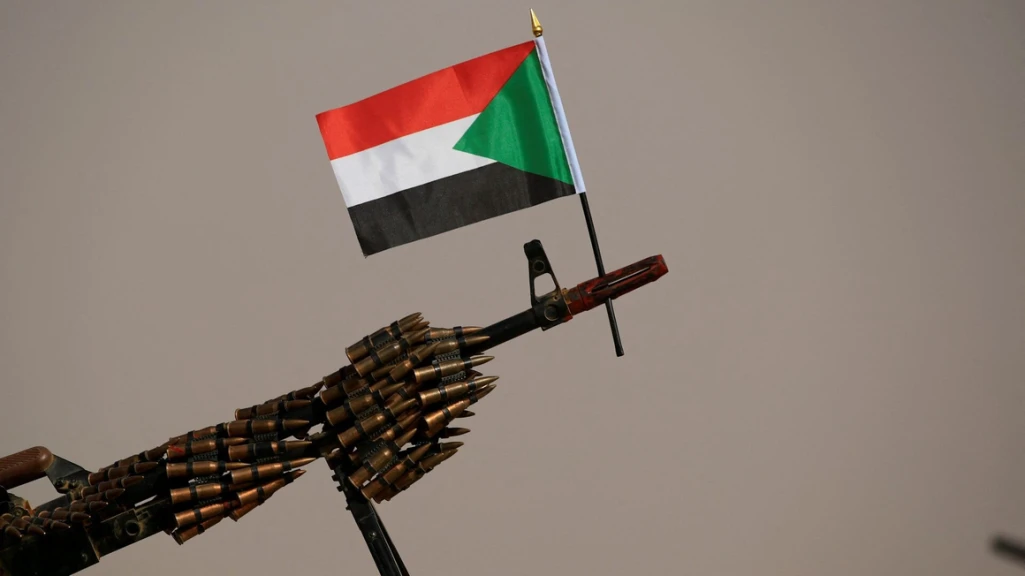
The war in Sudan has
given Moscow an opportunity to revive an agreement to establish a military base
in the Red Sea, helping it to expand its influence in the Horn of Africa
region.
Either that or the
Sudanese military leadership is playing Russia and the US as it pushes levers
to have itself recognised as the legitimate administration of Sudan and isolate
rivals Rapid Support Forces (RSF).
This week on Tuesday,
Malik Agar, deputy leader of the Sudan Transitional Sovereign Council led by
Abdel Fattah al-Burhan, visited Moscow where, a government dispatch
indicated he was to discuss defence co-operation. The idea, officials
indicated, was to help the junta gain arms while providing a naval logistics
base to Russia at Port Sudan.
The Saf said the trip
was part of efforts to “consolidate relations” with Russia, and according to a
statement from the Transitional Sovereignty Council. Mr Agar, it said, was in
Russia, “to discuss a number of issues with the Russian side and to participate
in the activities of the 27th session of the International Economic Forum in St
Petersburg.”
The deal was expected to
grant Russia a coveted access to the Horn of Africa coastline, enabling it to
run affairs with their contacts in the interior of Africa, just as much as it
allows it to play alongside rivals who already have military bases at the Red
Sea.
The Red Sea is also a
vital corridor for oil and international trade.
Yet in Sudan, Russia,
through its private military group Wagner, had initially played alongside the
RSF before stopping. Shifting to the Sudan Armed Forces (Saf) may imply
stronger political relevance as Moscow drives to compete internationally in
spite of Western sanctions.
Russia is already strong
in other junta-led countries of Mali and Niger. But they are both landlocked.
This change of tack by
Moscow also means something new for Khartoum: Reaching out to Moscow alarms
Washington, which had tried to mediate the conflict in Sudan and which has
tried to de-campaign Russia among allies in Africa.
Last week, Yasser
al-Atta, a member of Sudan’s Sovereign Council, and the assistant
Commander-in-Chief of the Sudanese Army, said Khartoum will sign agreements
with the Russian government, after Moscow asked to establish a base in Port
Sudan.
In turn, Moscow pledged
sufficient supply of weaponry in return for a base as well as mining and mining
and agricultural concessions from Sudan’s government.
The Russian news agency
Sputnik, quoting Sudanese ambassador to Russia Mohamed Serraj said Khartoum had
also offered ‘guarantees’ that it won’t renege on an offer for a naval
logistics base. In fact, the deal had already been agreed on in principle and Russia
had already started honouring part of the bargain, the report indicated. What
the officials were to do this week is add timelines and reassurances on it.
In 2019, the Russian and
Sudanese sides had signed an agreement on the establishment of a ‘logistics
support centre’ for the Russian Navy in Port Sudan, with the facility supposed
to host up to 300 Russian troops and refuel its ships.
Russian Foreign Minister
Sergei Lavrov confirmed after a visit to Sudan last year in February that the
agreement between Moscow and Khartoum on the establishment of a logistics
center for the Russian Navy in Sudan is currently in the ratification stage. But
that was before the war between RSF and SAF broke out in April last year.
Since then, the US
efforts to mediate, through the Jeddah Process, to have both sides sign
ceasefire agreements failed. The Jeddah Process includes Saudi Arabia and the
African Union through regional bloc Intergovernmental Authority on Development.
Recently, the US backed Kenyan President William Ruto to push for a third track
of civilian movements who have coalesced with rival armed groups that aren’t
part of the fighting factions.
They signed a
declaration in Nairobi last month, pledging to seek ceasefire, federate the
country, reach out to fighting factions and leading a political transition. But
that is if the Saf is willing to end the war politically. The Saf had earlier
refused President Ruto’s involvement although subsequent meetings with Burhan
in Nairobi had sort of thawed the rhetoric.
Last week, US Secretary
of State Antony Blinken spoke on phone with Burhan, urging him to resume talks.
“Secretary Blinken and
General Burhan discussed the need to urgently end the conflict in Sudan and
enable unhindered humanitarian access, including cross border and cross line,
to alleviate the suffering of the Sudanese people,” said a dispatch on May 28,
from the US State Department.
“The Secretary also
discussed the resumption of negotiations in the Jeddah platform and the need to
protect civilians and deescalate hostilities in El Fasher, North Darfur.”
Darfur is partially controlled by the Sudan Liberation Movement, one of the
groups who signed on the declaration in Nairobi under a civilian coalition
known as Taqaddum.